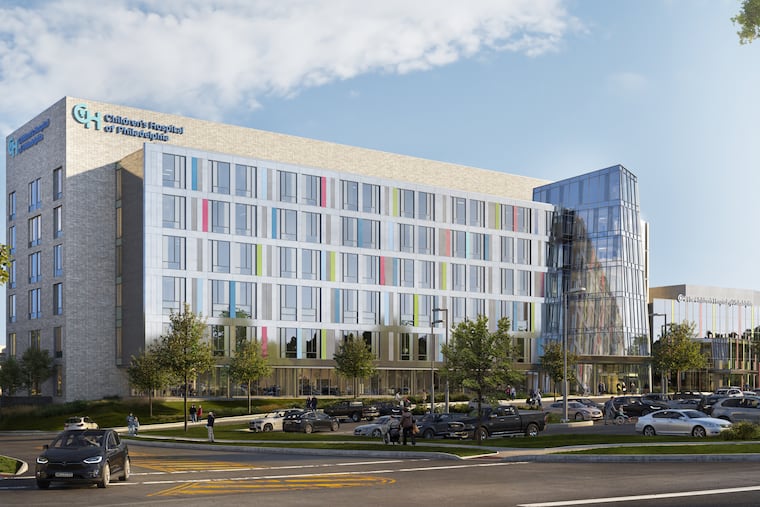Children’s Hospital of Philadelphia considers adding beds to new inpatient hospital in King of Prussia
Children’s Hospital of Philadelphia, planning to bring first inpatient facility to King of Prussia, expects high demand. It may increase beds from 52 to 108.

The Children’s Hospital of Philadelphia, which has announced plans to build its first inpatient facility in King of Prussia to alleviate crowding at its main campus in the city, is considering expanding the number of beds in the new suburban hospital to accommodate an expected high demand.
The 250,000-square-foot, seven-floor hospital will be the center of its medical complex in King of Prussia, which has had a busy outpatient center since 2015. Stockholm-based Skanska, the fifth-largest construction and development company in the world, signed a construction contract with CHOP worth $186 million, the company said.
Skanska expects construction to be done by late 2021. The hospital, which is being built at the bustling Village at Valley Forge, falls in line with a wave of commercial development in King of Prussia.
“We know that we need to expand and a lot of our patients come from our western suburbs," Madeline Bell, president and chief executive of the nonprofit CHOP, said Friday. “It’s really a big deal for us.”
When the hospital revealed it would build the inpatient facility last year, it intended to install 52 beds, 16 of which would be for pediatric intensive care. Now, considering the prospective demand at the new facility, Bell said there could be as many as 108 beds, the maximum allowed amount.
The hospital — among the largest and oldest pediatric care facilities in the world — has steadily expanded its footprint over the years, branching into New Jersey and Philadelphia’s collar counties. It is near Delaware-based Nemours/Alfred I. duPont Hospital for Children and St. Christopher’s Hospital for Children in Philadelphia.
The new facility could employ around 500 workers, Bell said, some of whom would be new hires while others would be staffers from the main University City campus. Medical residents will remain in Philadelphia.
Despite dense commercial and residential construction in King of Prussia, Bell said, building a sprawling hospital there would be easier than in Philadelphia, where buildings are packed together and parking is often limited.
King of Prussia is a “green space," she said, and township employees have “just been really terrific."
“Frankly, we can build much quicker there. It’s a growing location," she said, adding that the hospital took a “no-regrets strategy” expanding further into the suburbs.